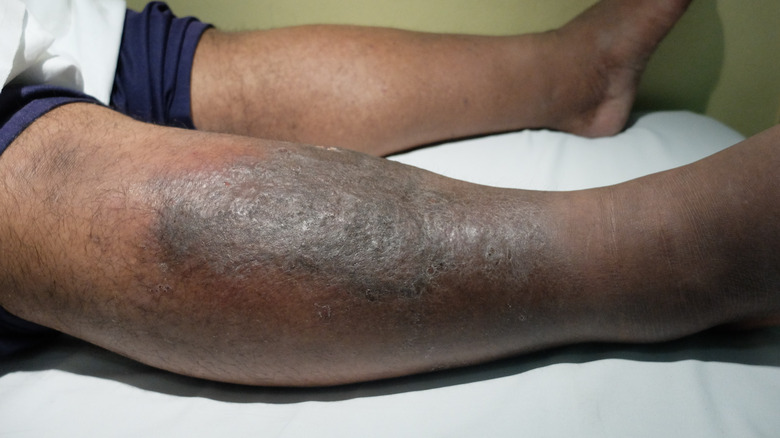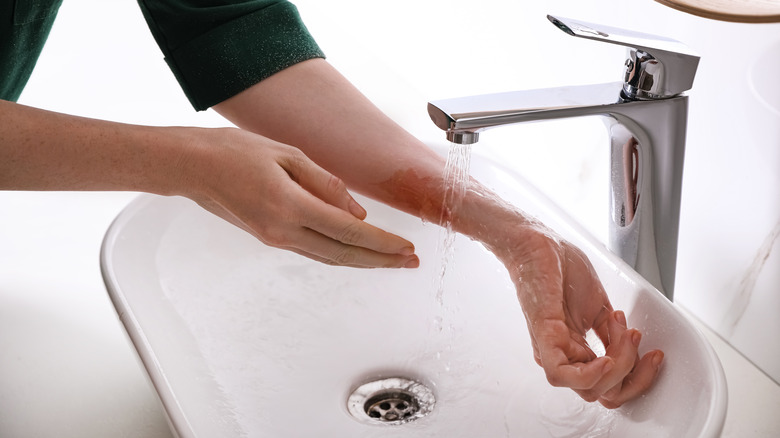This Is What You Can Do To Prevent Cellulitis
Cellulitis, like many infections, is something you want to catch early. It's a bacterial infection usually caused by the bacteria streptococcus or staphylococcus, which occurs when the bacteria enter the body through a cut or open wound on the skin's surface (via Mayo Clinic). This causes an infection that results in red, swollen, and tender skin that's painful to the touch.
Although cellulitis usually appears on the lower legs, it isn't limited to that region. Dr. Edidiong C. Kaminska, a dermatologist and a spokesperson for the American Academy of Dermatology, explains, "The most common location for cellulitis is the lower legs, but it can occur on any part of the body, including the face. Additionally, it usually affects one side of the body, so for example, it's very rare to have cellulitis affect both legs" (via Everyday Health).
While the infection is usually easily treatable with antibiotics, if left untreated, it can quickly become serious and even life-threatening, spreading to the lymph nodes and bloodstream, and those who have had it already are more susceptible to getting it again (via Mayo Clinic).
Careful wound care is essential
Since cellulitis is an infection that starts on the skin, taking steps to prevent it means taking good care of your skin. Being careful to avoid injuries and keeping fingernails and toenails clean and trimmed can help prevent breakage and scratches on the skin. Treating wounds immediately by gently cleaning with soap and water, applying a cream or ointment, and protecting it with a clean bandage is vital, according to Mayo Clinic.
Treating other medical conditions such as diabetes, eczema, leg ulcers, or periphery artery disease can also help reduce the risk of cellulitis (via American Academy of Dermatology Association). Amesh A. Adalja, MD, a board-certified infectious disease physician in Pittsburgh and a senior scholar at the Johns Hopkins University Center for Health Security in Baltimore, told Everyday Health, "A weakened immune system makes the task of invading bacteria easier, as it has less of a burden to contend with when it invades tissues."
Maintaining careful skin hygiene and managing underlying health conditions can go a long way towards preventing cellulitis. But if you do spot redness and swelling on the skin, don't wait to see a doctor. Catching it early can make the difference between having a minor infection and a serious one.


